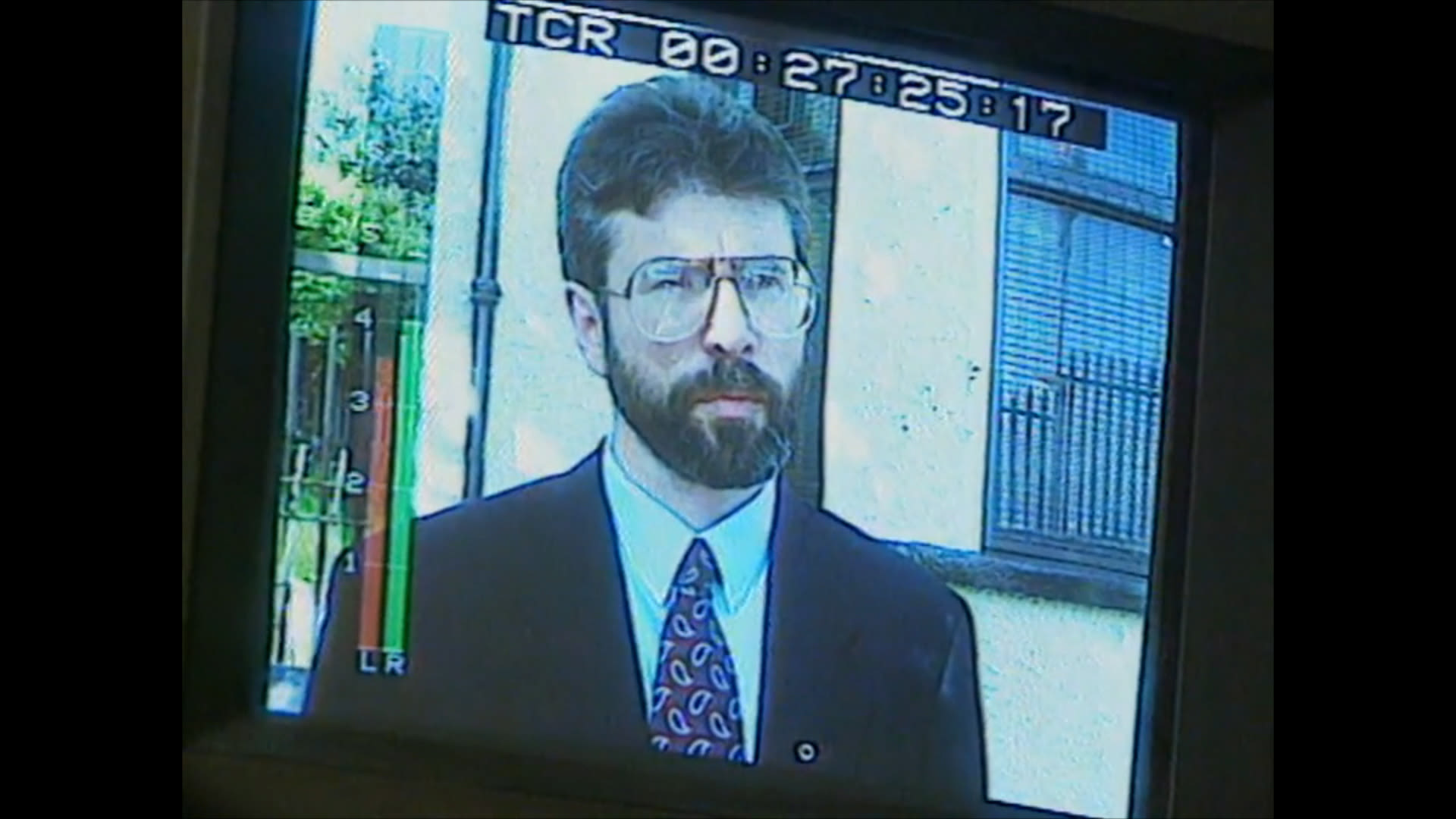
"Yesterday the government banned all British television and radio stations from broadcasting interviews with members of Sinn Fein or their supporters, but will it reduce terrorism or merely curb press freedom? [dramatic music] [Reporter] It's the past year of IRA bombing and killing that persuaded the government this summer to look at the whole of its policy for dealing with terrorism and its supporters in Northern Ireland. [dramatic music]"
"Ministers and many MPs have been incensed by the way people like Sinn Fein president Gerry Adams have appeared on television and radio after such attacks sometimes to justify them, sometimes to make their apologies. [dramatic music] In the past, Mrs. Thatcher thought that moral pressure on the broadcasters would be enough to stop such appearances. Now the Prime Minister thinks that as Ulster terrorism has continued and increased, so have the obligations on broadcasters."
The government imposed a ban on British television and radio broadcasting interviews with Sinn Fein members and supporters. The ban followed a year of IRA bombings and killings that prompted a review of policy toward terrorism and its supporters in Northern Ireland. Ministers and many MPs expressed anger at Sinn Fein figures, including Gerry Adams, appearing on air after attacks, sometimes appearing to justify or apologize for violence. Mrs. Thatcher previously relied on moral pressure on broadcasters, but the Prime Minister judged that growing Ulster terrorism required stronger obligations. Journalists covered tense funerals where a gunman fired over coffins and the RUC reviewed funeral policies.
Read at The New Yorker
Unable to calculate read time
Collection
[
|
...
]